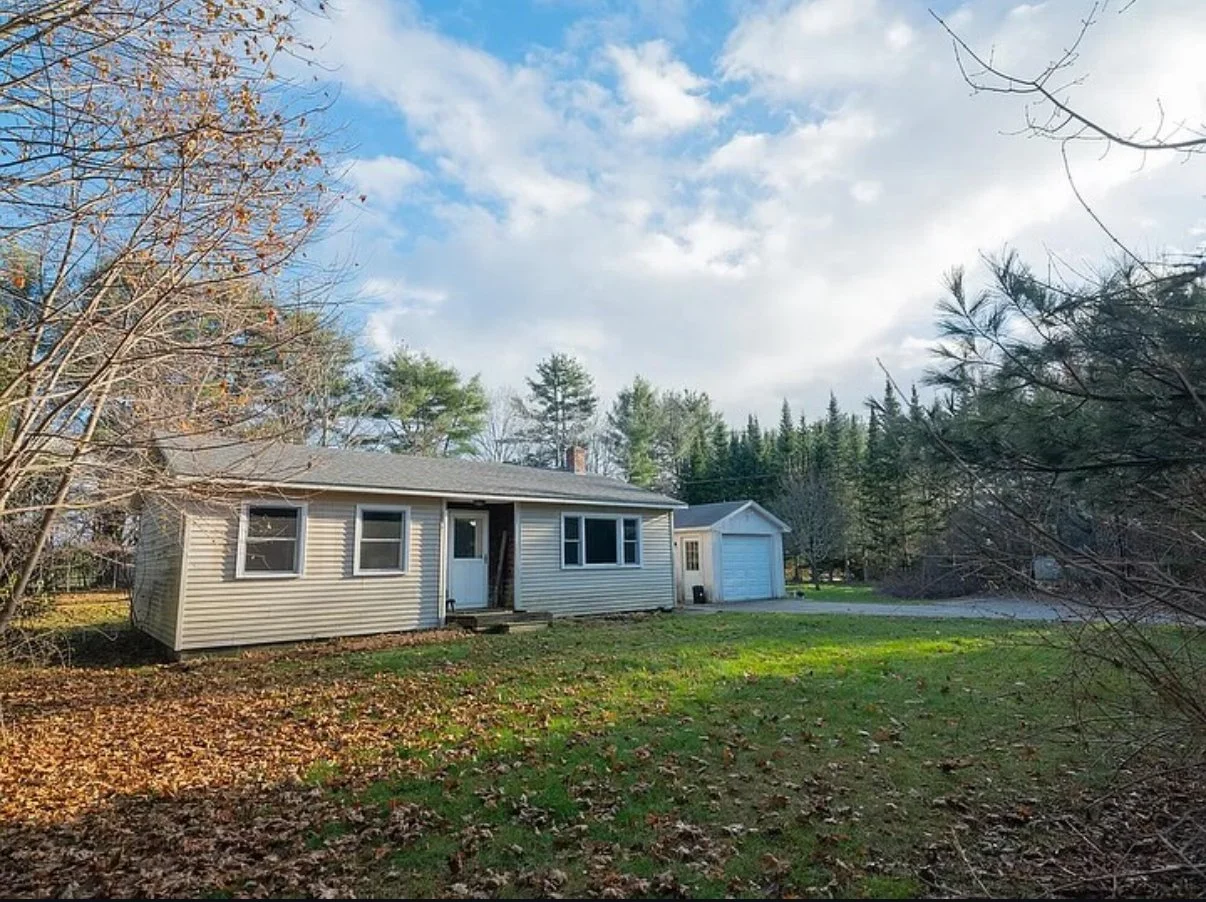Real Estate Glossary:
Some Common Terms to Help You Along the Way
Navigating the world of real estate can feel like learning a foreign language, especially if you’re new to buying or selling a home. Terms like "escrow," "contingency," and "earnest money deposit" can leave you feeling overwhelmed and confused. Kristin Rofe understands this firsthand — when she was studying for her license, she felt the exact same way! That’s why she’s passionate about making the process clear and approachable for her clients. Here are some common terms you’ll hear throughout the buying and selling journey that can help you better understand each step and feel more confident along the way.
Adjustable-Rate Mortgage (ARM) – A mortgage with an interest rate that changes periodically based on market conditions.
Agreement of Sale – A legally binding contract outlining the terms of a real estate transaction.
Amortization Schedule – A table detailing each mortgage payment, showing how much goes toward principal and interest over time.
Appreciation – The increase in a property's value over time due to market conditions or improvements.
Assessed Value – The value assigned to a property by a local government for tax purposes.
Backup Offer – A secondary offer on a property that may take effect if the primary deal falls through.
Bidding War – When multiple buyers submit competing offers on a property, often driving up the price.
Bridge Loan – A short-term loan used to finance the purchase of a new home before selling the current one.
Building Code – Regulations that specify construction and maintenance standards for properties.
Buyer’s Market – A real estate market where supply exceeds demand, often leading to lower prices.
Capital Gains Tax – A tax on the profit made from selling a property.
Certificate of Occupancy – A document certifying that a property meets local building codes and is suitable for occupancy.
Chain of Title – A history of all recorded ownership transfers of a property.
Clear Title – A title without any legal claims, liens, or disputes.
Closing Costs – Expenses beyond the property’s purchase price, such as title fees, lender fees, and taxes.
Co-Borrower – An additional borrower on a mortgage loan who shares responsibility for repayment.
Commission – A fee paid to a real estate agent, typically a percentage of the home’s sale price.
Comparative Market Analysis (CMA) – A report analyzing recent sales of similar properties to estimate a home’s value.
Condominium (Condo) – A type of property ownership where individuals own units in a shared building with common areas.
Contingency Clause – A condition that must be met for a contract to be legally binding, such as financing or home inspection.
Conventional Loan – A mortgage that is not insured or guaranteed by the government.
Covenants, Conditions & Restrictions (CC&Rs) – Rules governing properties in a homeowners’ association (HOA) or planned community.
Debt-to-Income Ratio (DTI) – The percentage of a borrower’s income used to pay monthly debt obligations.
Deed in Lieu of Foreclosure – A voluntary transfer of property ownership to the lender to avoid foreclosure.
Default – Failure to meet the obligations of a loan agreement, such as missing mortgage payments.
Depreciation – A decrease in a property’s value due to wear and tear or market conditions.
Down Payment Assistance Program – Financial assistance provided to help buyers cover down payment costs.
Dual Agency – When one real estate agent or brokerage represents both the buyer and seller in a transaction.
Easement – A legal right for someone to use another person’s land for a specific purpose (e.g., utility access).
Encroachment – When a structure extends beyond the legal property boundary.
Encumbrance – Any claim, lien, or restriction on a property that may affect its use or value.
Equity – The difference between a home’s market value and the outstanding mortgage balance.
Escalation Clause – A provision in a purchase offer that increases the bid price if competing offers arise.
Escrow Account – A third-party account used to hold funds until the conditions of a sale are met.
Exclusive Listing – A property listed exclusively with one real estate agent or brokerage.
Fair Market Value – The price a property would sell for in an open and competitive market.
Fannie Mae (FNMA) – A government-sponsored entity that buys and guarantees mortgages to help maintain market liquidity.
FHA Loan – A government-backed mortgage insured by the Federal Housing Administration, typically requiring a lower down payment.
Fixed-Rate Mortgage – A mortgage with a constant interest rate for the entire loan term.
Foreclosure – The legal process in which a lender repossesses a home due to non-payment.
Freddie Mac (FHLMC) – A government-sponsored enterprise that purchases mortgages to stabilize the housing market.
Gentrification – The transformation of a neighborhood due to an influx of investment, often increasing property values and displacing long-term residents.
Good Faith Estimate (GFE) – A document outlining expected loan costs before finalizing a mortgage.
Grant Deed – A deed that guarantees the seller has clear ownership of the property and the right to transfer it.
Home Appraisal – A professional valuation of a property’s worth.
Home Equity Loan – A loan using a home’s equity as collateral.
Homeowners Association (HOA) – An organization that enforces rules and maintains common areas in certain communities.
Homeowners Insurance – A policy that protects against damage or loss to a home.
HUD (Department of Housing and Urban Development) – The federal agency overseeing housing programs and fair housing laws.
Inspection Contingency – A contract clause allowing the buyer to renegotiate or cancel a deal based on inspection results.
Interest-Only Loan – A loan where the borrower pays only interest for a set period before principal payments begin.
Joint Tenancy – Co-ownership where both parties have equal shares and survivorship rights.
Jumbo Loan – A mortgage exceeding the loan limits set by Fannie Mae and Freddie Mac.
Leaseback – When a seller rents back the home from the buyer after closing.
Lien – A legal claim against a property for unpaid debts.
Listing Agent – A real estate agent representing the seller.
Loan-to-Value Ratio (LTV) – The percentage of a home’s value borrowed in a mortgage.
Market Value – The price a willing buyer and seller would agree upon in an open market.
Mixed-Use Property – A property with both residential and commercial spaces.
Mortgage Broker – A professional who connects borrowers with lenders.
Negative Amortization – When loan payments do not cover interest, causing the loan balance to increase.
Origination Fee – A fee charged by lenders for processing a loan application.
Owner Financing – A seller-financed purchase arrangement.
Pocket Listing – A property for sale that is not publicly advertised.
Pre-Qualification – An initial assessment of a buyer’s ability to obtain a mortgage.
Probate Sale – A home sale overseen by a court due to the owner’s passing.
Quitclaim Deed – A deed transferring ownership without guarantees on the title.
Real Estate Investment Trust (REIT) – A company that owns income-producing real estate.
Reverse Mortgage – A loan for seniors that converts home equity into cash.
Short Sale – A sale where the home sells for less than the mortgage balance, requiring lender approval.
Tenant in Common (TIC) – A shared property ownership structure.
Title Search – A review of public records to confirm property ownership.
Underwriting – A lender’s process of assessing risk.
Zoning Laws – Local regulations dictating property use.





